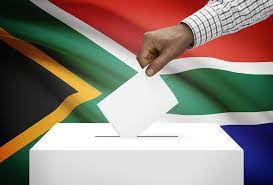South Africa’s security forces are on high alert as the country prepares for general elections on May 29, with the National Joint Operational and Intelligence Structure (Natjoints) expressing confidence in the measures in place to ensure a peaceful and incident-free poll.
Natjoint chairperson Tebello Mosikili told journalists in Pretoria on Sunday that the Natjoints coordination centre, which would be operational from May 22 to June 9, would work round the clock to proactively identify and deal with threats and vulnerabilities.
“After conducting a national security assessment with key role players in the Justice, Crime Prevention and Security Cluster, we are satisfied with the operational plan that is currently being implemented and can assure South Africans that a conducive environment for a peaceful election has been prepared,” Mosikili said.
One of the measures proposed is the deployment of members of the South African National Defence Force to a number of high-risk polling stations where the Natjoints believes there is the likelihood of volatile incidents during voting.
She said law enforcement agencies are also on high alert across South Africa to ensure there are no criminal activities before, during and after the voting.
She revealed that the security forces are also tracking social media postings and have identified a number of areas that need addressing. These include the circulation of fake news and calls for violence.
Mosikili called on South Africans to be vigilant when it comes to social media posts, urging them to guard against “unverified information, rumours or threats as this seeks to cause panic and confusion, and in some instances incite possible violence”.
“We urge members of the public to fact-check first before sharing anything on social media platforms. Those who are found to be sharing inflammatory messages and inciting violence will be charged accordingly,” she said.
The May 29 poll is proving to be a high-stakes political game, with opinion polls pointing to mounting pressure on the governing African National Congress which is projected to see its popularity fall below 50 percent of ballots for the first time since independence in 1994.
JN/APA


